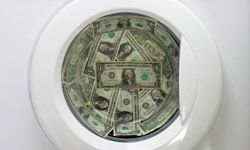With no warning, your washing machine has become violently mutinous. As you watch in horror, its typical spin cycle goes psycho. The entire possessed unit vibrates across the floor toward you, with the lid flung open and untold gallons of water spewing, soaking your basement and sinking your savings account. It's probably time to buy another one.
Whether your older appliances have gone berserk or just really need updating, the used-appliance market is always an option. But it's best to understand the pros and cons of used equipment before you spring for the first refrigerator you find on a classified ad Web site.
Advertisement
For starters, understand that the higher prices you pay at a retail store come with a couple of advantages, like product warranties and for larger appliances, free or discounted delivery.
What's more, there's a certain element of risk that comes into play every time you buy a used product, whether it's a car, camera or dryer. We'd love to vouch for specific product categories and their general reliability on the used market. However, product quality varies so much from manufacturer to manufacturer (and even within products made by one company), that it's difficult, if not impossible, to say that ovens, for example, are always a great deal when you find them used. That's why you have to shop smart, be observant and always, always do your homework before you buy.
We have vital pointers to share for when you go shopping for these necessary appliances. Keep reading, and you'll see how to replace your demonic washer with one that doesn't leave you all wet.


